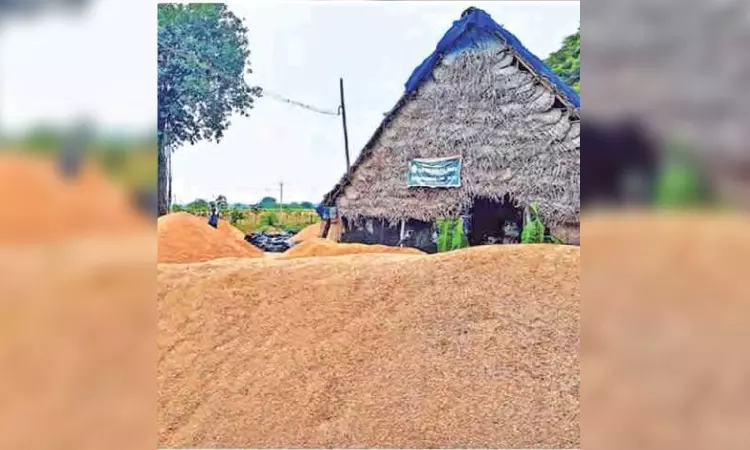Kuruvai yield down by 20% due to poor supply of Mettur water
Due to subsequently shortage of water farmers forced to depend on the south west monsoon. But south west monsoon wasn’t helpful and the farmers are forced to live with lesser yield.

TIRUCHY: Even as kuruvai harvest is almost over in many places of the Delta, the farmers are dejected as their anticipation for a bumper harvest has failed. Leaders of farmers’ association point out that yield is around 20 per cent less than usual.
Delta farmers had achieved more than the target of 3.50 lakh acre cultivation with the release of water from Mettur on its customary date of June 12 for kuruvai. But the harvest isn’t up to their expectation.
Due to subsequently shortage of water farmers forced to depend on the south west monsoon. But south west monsoon wasn’t helpful and the farmers are forced to live with lesser yield. “Actually we get 2,400 kg of paddy from an acre of land. This time we could get only 2,000 kg”, said Swamimalai Sundara Vimalnathan, Secretary, Tamil Nadu Cauvery Farmers Protection Association.
The farmer leader said that there was at least 20 per cent yield loss due to water scarcity. “The farmers along with agriculture officials have visited at least 75 spots in Thanjavur district alone and they could get between 2,000 and 2,100 kgs of paddy per acre. We cultivated paddy with the expectation of adequate river water but it failed. Consistent Cauvery water supply would have ensured healthy crop and a good yield”, he said.
Farmers who cultivated with ground water resource could get between 45 and 50 bags of paddy in an acre, said V Mariappan, a progressive farmer from Orathanadu in Thanjavur. “The irony is that those who depended on the river water for irrigation could get just 25 bags of paddy per acre, a small jump which is unexpected,” Mariappan said.
An yield of at least 30 bags per acre would be profitable said the farmer. If they get the yield below 30 bags, the farmers would certainly lose their production cost and most of the farmers from the region, which presents a gloomy picture, he said. Farmers would at least Rs 30,000 per acre because of this lesser yield, he added.



